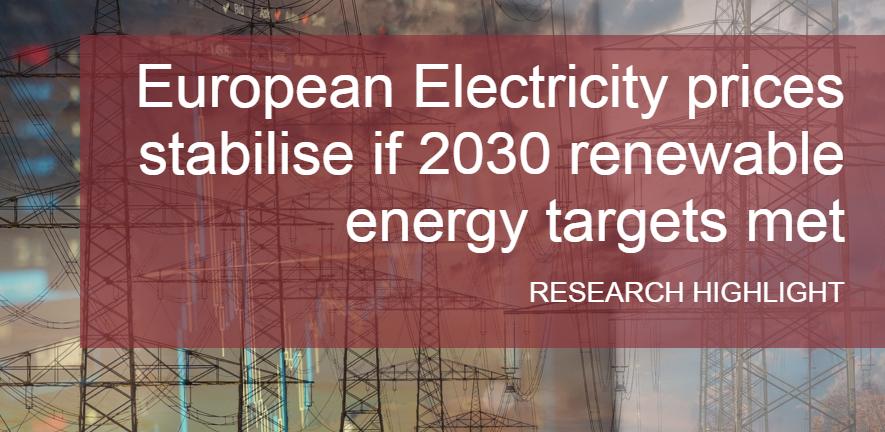
National targets for solar and wind power will see reliance on natural gas plummet, reducing electricity price volatility across Europe, with major beneficiaries including the UK and Ireland, the Nordics, and the Netherlands.
Hitting the current national 2030 quotas for solar and wind energy could reduce the volatility of electricity markets by an average of 20% across 29 European countries, according to a new study from the University of Cambridge. The intensity of spikes in power prices are predicted to fall in every country by the end of the decade if commitments to green energy are met, as natural gas dependency is cut.
The UK and Ireland would be the biggest beneficiaries, with 44% and 43% reductions in the severity of electricity price spikes by 2030, compared with last year. Germany could experience a 31% decline in electricity price volatility, with the Netherlands and Belgium seeing price spikes ease by 38% and 33% respectively. The simulations conducted for the new study show that scaling up renewable energy minimises the market impact of fluctuations in natural gas price – increasing stability even when considering the reliance of renewable technologies on weather.
"The volatility of energy prices is a major cause of damage to national economies. Consumers are still reeling from sharp increases in electricity prices brought about by natural gas shortages following Russia’s invasion of Ukraine.”
“We show that hitting renewables targets reduce the likelihood of such price spikes in the future,” Professor Laura Diaz Anadon, Department of Land Economy
The new study also charts the effects on electricity prices if countries overshoot on renewables. If Europe exceeds its renewable energy goals by 30%, electricity prices could become 50% less sensitive to natural gas, compared to just meeting renewables targets.
However, the study suggests there are tipping points where renewables cause the price of power to fall so far that it stops providing sufficient return on investment, and the green energy industries may stall.
Added Navia: “If we are to fully utilise solar and wind as a security tool, Europe might have to rethink how its energy markets are designed, and what incentives it can offer the private sector to maintain the societal insurance value it gets from renewable energy.”
Read the University of Cambridge article
Read the research paper: Power price stability and the insurance value of renewable technologies, Daniel Navia Simon & Laura Diaz Anadon. Nature Energy (January 2025)
Image credit: analogicus

